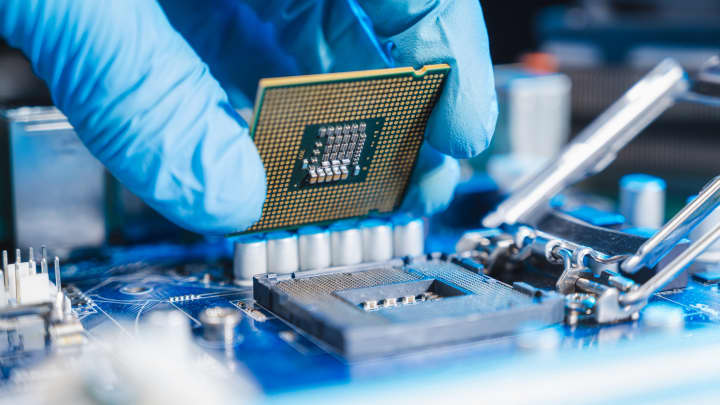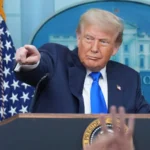
In a significant policy development, the Trump administration has announced exemptions for key electronic products from its recently imposed reciprocal tariffs. This move, detailed in a notice by U.S. Customs and Border Protection, applies to smartphones, laptops, hard drives, computer processors, memory chips, and semiconductor manufacturing equipment. The decision aims to alleviate potential economic strain on consumers and major technology companies reliant on Chinese manufacturing.
Understanding the Reciprocal Tariffs
The reciprocal tariffs, introduced by President Trump, are part of a broader strategy to impose duties on imports from countries that levy higher taxes on U.S. goods. These tariffs include a 125% levy on Chinese imports and a baseline 10% duty on products from other nations. The intent behind these measures is to address trade imbalances and encourage domestic manufacturing. However, the initial scope of these tariffs raised concerns about their impact on consumer electronics, which are predominantly manufactured overseas.
Exemptions: A Relief for Consumers and Tech Giants
The recent exemptions provide relief to consumers and technology companies by excluding essential electronic products from the new tariffs. Items such as smartphones, laptops, hard drives, and semiconductor manufacturing equipment are now shielded from the additional duties. This decision is particularly beneficial for companies like Apple and Samsung, whose products are heavily reliant on Chinese production and would have faced increased costs under the new tariff regime.
Implications for the Semiconductor Industry
The exclusion of semiconductor manufacturing equipment from the tariffs is a strategic move to support the U.S. semiconductor industry. Companies like Taiwan Semiconductor Manufacturing Co., which have announced significant investments in the U.S., stand to benefit from this decision. The availability of tariff-free equipment is crucial for the expansion and modernization of semiconductor manufacturing facilities, ensuring the competitiveness of the U.S. in the global technology market.
Potential Future Tariffs on Semiconductors
While semiconductor manufacturing equipment is currently exempt, the Trump administration has indicated that specific tariffs on semiconductors may be introduced in the future. President Trump has previously stated intentions to impose tariffs of 25% or higher on semiconductor imports. The current exemptions may serve as a temporary reprieve, with the possibility of sector-specific tariffs being implemented at a later stage.
Strategic Considerations and Global Reactions
The decision to exempt certain electronic products from the reciprocal tariffs reflects a strategic balancing act by the Trump administration. By shielding critical consumer electronics and semiconductor manufacturing equipment, the administration aims to mitigate potential economic disruptions while still pursuing its broader trade objectives. This move has been welcomed by the technology sector, which had expressed concerns about the adverse effects of the tariffs on production costs and consumer prices.
Conclusion: A Tactical Adjustment in Trade Policy
The Trump administration’s decision to exempt smartphones, laptops, and semiconductor manufacturing equipment from reciprocal tariffs represents a tactical adjustment in its trade policy. By selectively excluding these products, the administration seeks to protect consumers and key industries while maintaining pressure on trading partners to address trade imbalances. As the global trade landscape continues to evolve, this development underscores the complexities and nuances of international trade negotiations and their far-reaching implications.




































Leave a Reply